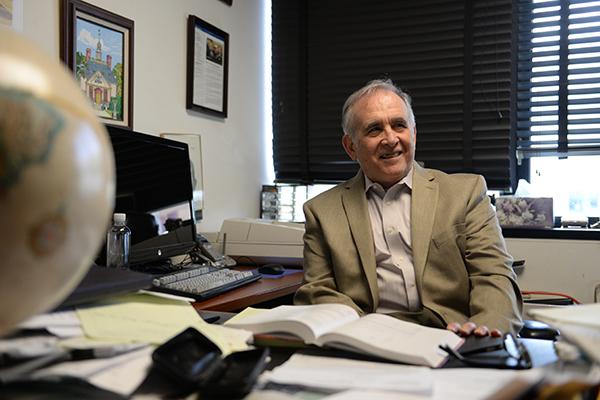Faculty leaders are working on a guide to help administrators deal with disputes over whether a professor should be awarded tenure.
Faculty began working on the guide, which will go into more detail for how to best deal with challenges to a faculty member receiving tenure, after issues were raised while discussing the tenure of three faculty members this year.
Professor Charles Garris, who is the chair of the Faculty Senate’s executive committee and is leading the project, said challenges to awarding tenure, which are called non-concurrences, are best left to faculty rather than administrators.
Garris said during the three incidents of non-concurrences that have occurred this year, faculty members felt that those who disagreed with tenure decisions did not properly defend themselves.
“Part of the problem is that so many departments and different schools have personnel committees, so there isn’t any special training for them on how to do these things every time,” he said.
He added that he hopes the document, which he has worked on with the rest of the executive committee and the provost’s office, will be done over the next couple of weeks. He added that it isn’t likely to be presented at the Faculty Senate until November or December.
Although each of GW’s schools has slightly different procedures, faculty typically receive tenure first by going through an appointment, promotion and tenure committee made up of faculty by the school. If that group determines that the professor is worthy of tenure, it goes on to the school’s dean and then the provost. The Board of Trustees rubber stamps all tenure decisions, a process Board Chair Nelson Carbonell said he wanted to change last spring.
A tenured professor will earn about $2 million on average at GW, according to estimates.
University policy says when tenure decisions are challenged, the dean should defer to the decision made by the department.
Garris said sometimes deans ignore this policy and use their own judgment, a practice that has upset professors involved in the process.
“If the dean is going to non-concurr, he or she has to support his or her reason for non-concurrence and basically explain why there’s a compelling reason, and sometimes there’s disagreement over what a compelling reason is,” he said.
Garris said he hopes the template will help clear up the issue of what evidence each party in a disputed tenure case must provide, and what steps should come next in the process, depending on the scenario.
Rajiv Rimal, chair of the department of prevention and community health, said he had received the proper guidelines about how to award a professor tenure, but he had yet to deal with an objection to a faculty member receiving tenure.
Rimal said it’s important for faculty to be involved in the decision-making process because of their knowledge of how their specific school functions and of what deserving professors can bring to the institution.
“Think about the how the Oscars are handed out,” Rimal said. “It’s your peers who know you and evaluate your given work and reputation. The same principle applies for tenure decisions as well.”
Cary Nelson, former president of the American Association of University Professors, said it is important to have a document to provide a point of reference for both faculty and administrators involved in tenure decisions.
“Procedures are what are central … to everyone getting a buy-in into what happens,” he said. “We’re all human beings, we mess up and lose things, that’s life. We want to try to have ways to deal with this in a serious manner.”
About 78 percent of GW’s faculty are not on the tenure track, according to data released in 2013.
Carbonell called for a University-wide tenure review committee to replace the traditional system of going through a department-specific process at a Faculty Senate meeting last March.
He said during the meeting that he believed the Board of Trustees was not the appropriate group to make academic decisions such as tenure.
Some of GW’s peer universities have already implemented an institution-wide system of awarding tenure. Duke and Georgetown universities have special interdisciplinary committees, and Boston University has its own special committee created for the sole purpose of determining whether a faculty member should receive tenure.







